METFORMIN HYDROCHLORIDE PROLONGED RELEASE AND GLIMEPIRIDE TABLETS IP
METFORMIN HYDROCHLORIDE PROLONGED RELEASE AND GLIMEPIRIDE TABLETS IP Specification
- Dosage Form
- Tablets
- Origin of Medicine
- India
- Pacakaging (Quantity Per Box)
- 10 x 15 tablets
- Drug Type
- General Medicines
- Physical Form
- Tablets
- Recommended For
- Adults
- Dosage
- As Per Instructions
- Dosage Guidelines
- As directed by a physician
- Suitable For
- Adults
- Storage Instructions
- Keep in a Cool & Dry Place
METFORMIN HYDROCHLORIDE PROLONGED RELEASE AND GLIMEPIRIDE TABLETS IP Trade Information
- Minimum Order Quantity
- 100 Pieces
- Payment Terms
- Cash in Advance (CID)
- Packaging Details
- 10*15
- Main Domestic Market
- All India
About METFORMIN HYDROCHLORIDE PROLONGED RELEASE AND GLIMEPIRIDE TABLETS IP
Metformin Hydrochloride Prolonged Release and Glimepiride Tablets IP is a combination medication used to manage type 2 diabetes mellitus. Heres a detailed overview:
Composition & Classification:
-
Metformin Hydrochloride (Prolonged Release):
-
Belongs to the biguanide class.
-
Works primarily by decreasing hepatic glucose production and increasing insulin sensitivity.
-
-
Glimepiride:
-
Belongs to the sulfonylurea class.
-
Stimulates the pancreas to release more insulin.
-
Therapeutic Use:
-
Indicated for: Type 2 Diabetes Mellitus (especially when diet, exercise, and single drug therapy are not adequate).
-
Goal: To improve glycemic control and reduce the risk of complications from diabetes.
Mechanism of Action:
-
Metformin:
-
Decreases liver glucose production.
-
Improves insulin sensitivity in peripheral tissues.
-
Delays intestinal glucose absorption.
-
-
Glimepiride:
-
Stimulates pancreatic -cells to release insulin.
-
May also increase insulin sensitivity in tissues.
-
Dosage and Administration:
-
Typically taken once daily with food to reduce gastrointestinal side effects (from metformin).
-
Dosage depends on patients blood sugar levels and tolerance.
-
Must be individualized under medical supervision.
Common Side Effects:
-
Metformin:
-
Nausea, diarrhea, abdominal discomfort
-
Rare: lactic acidosis (serious)
-
-
Glimepiride:
-
Hypoglycemia (low blood sugar)
-
Weight gain
-
Allergic skin reactions
-
Precautions:
-
Renal impairment: Monitor kidney function before and during treatment.
-
Liver disease: Use with caution.
-
Alcohol: Increases risk of lactic acidosis and hypoglycemia.
-
Not recommended in Type 1 diabetes or diabetic ketoacidosis.
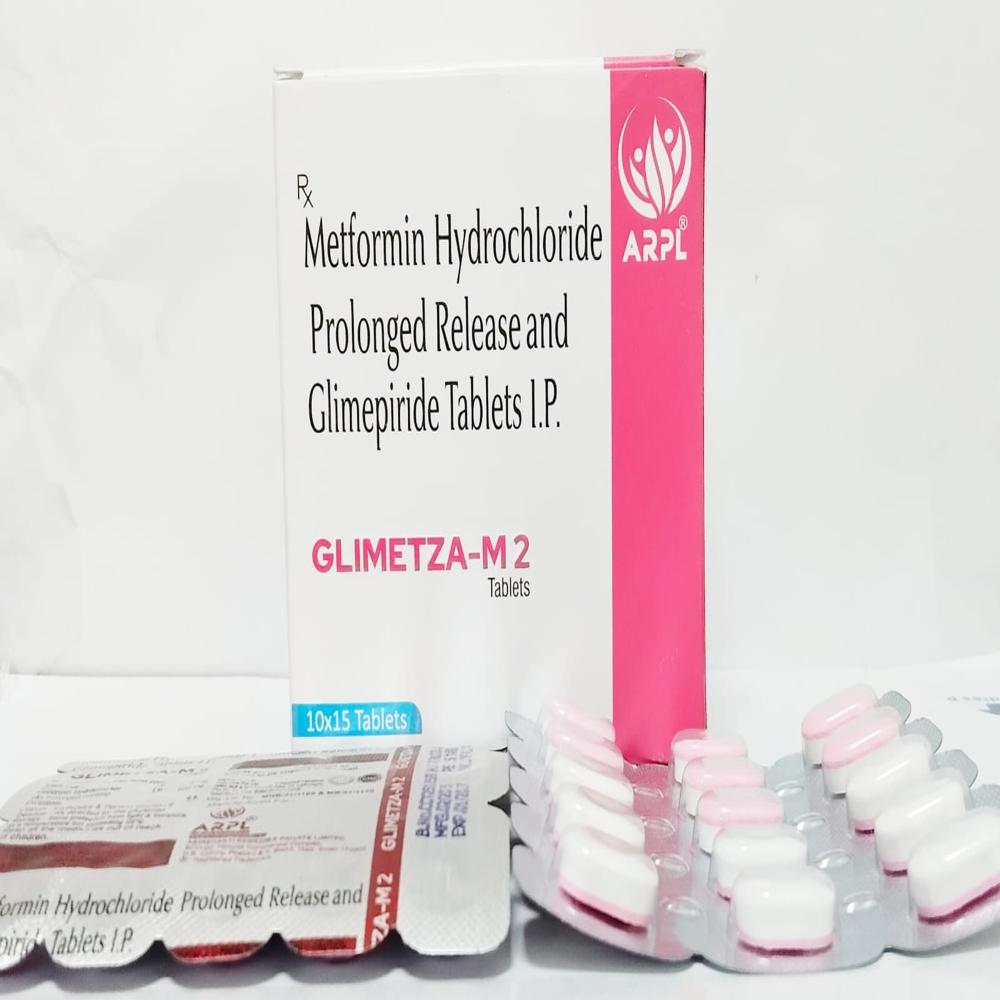

Price:
- 50
- 100
- 200
- 250
- 500
- 1000+
More Products in Pharmaceuticals Tablets Category
Cefixime & Lactic Acid Bacillus Dispersible Tablets
Price 105.0 INR / Box
Minimum Order Quantity : 100 Boxes
Physical Form : Tablets
Drug Type : Other, Prescription
Storage Instructions : Store in a cool, dry place, protected from light
Origin of Medicine : Allopathic
Antioxidants Multivitamin Mineral Herbal Tablets
Price 100.0 INR / Box
Minimum Order Quantity : 300 Boxes
Physical Form : Tablets
Drug Type : General Medicines
Storage Instructions : Dry Place
Origin of Medicine : India
ADIFER - ZXT
Price 155.0 INR / Box
Minimum Order Quantity : 100 Boxes
Physical Form : Tablets
Drug Type : General Medicines
Storage Instructions : Store in a cool, dry place. Protect from light.
Origin of Medicine : Allopathic
GLIM ETZO
Price 132.0 INR / Piece
Minimum Order Quantity : 1200 Pieces
Physical Form : Tablets
Drug Type : General Medicines
Storage Instructions : Keep dry & cool place
Origin of Medicine : India



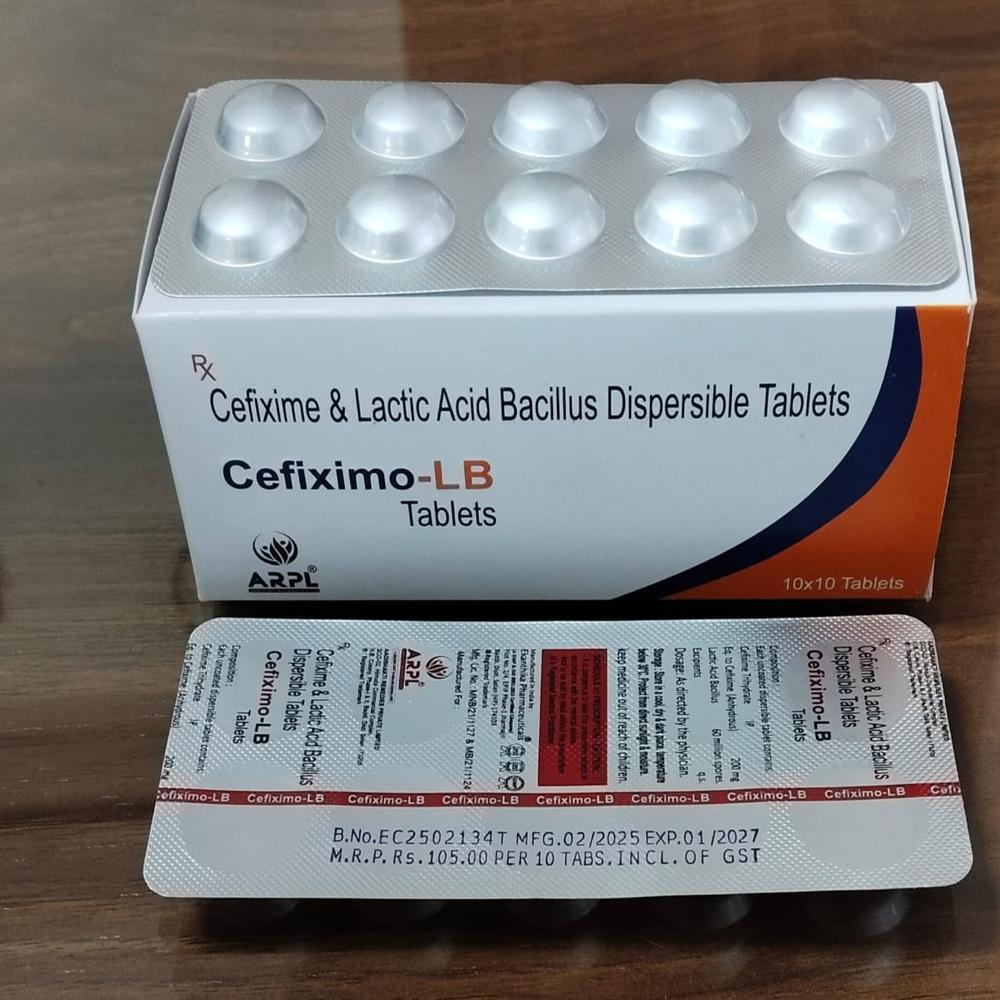
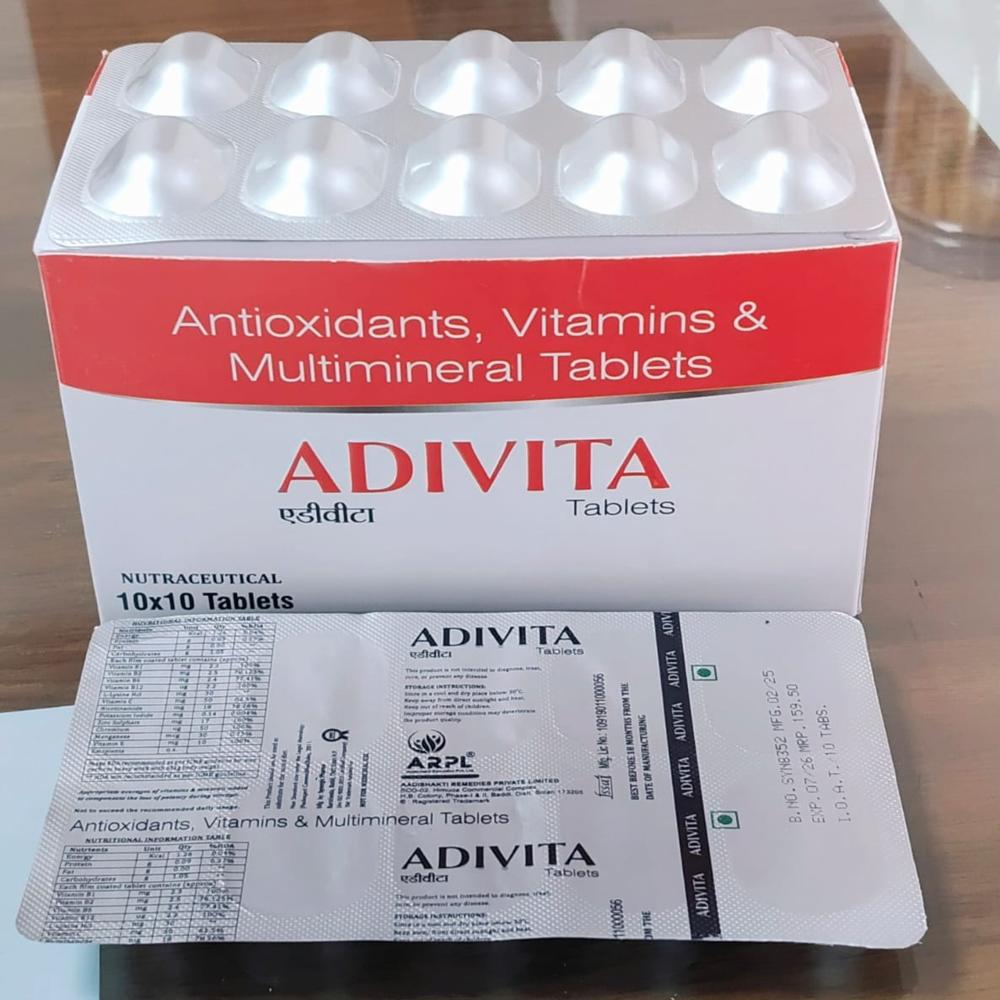
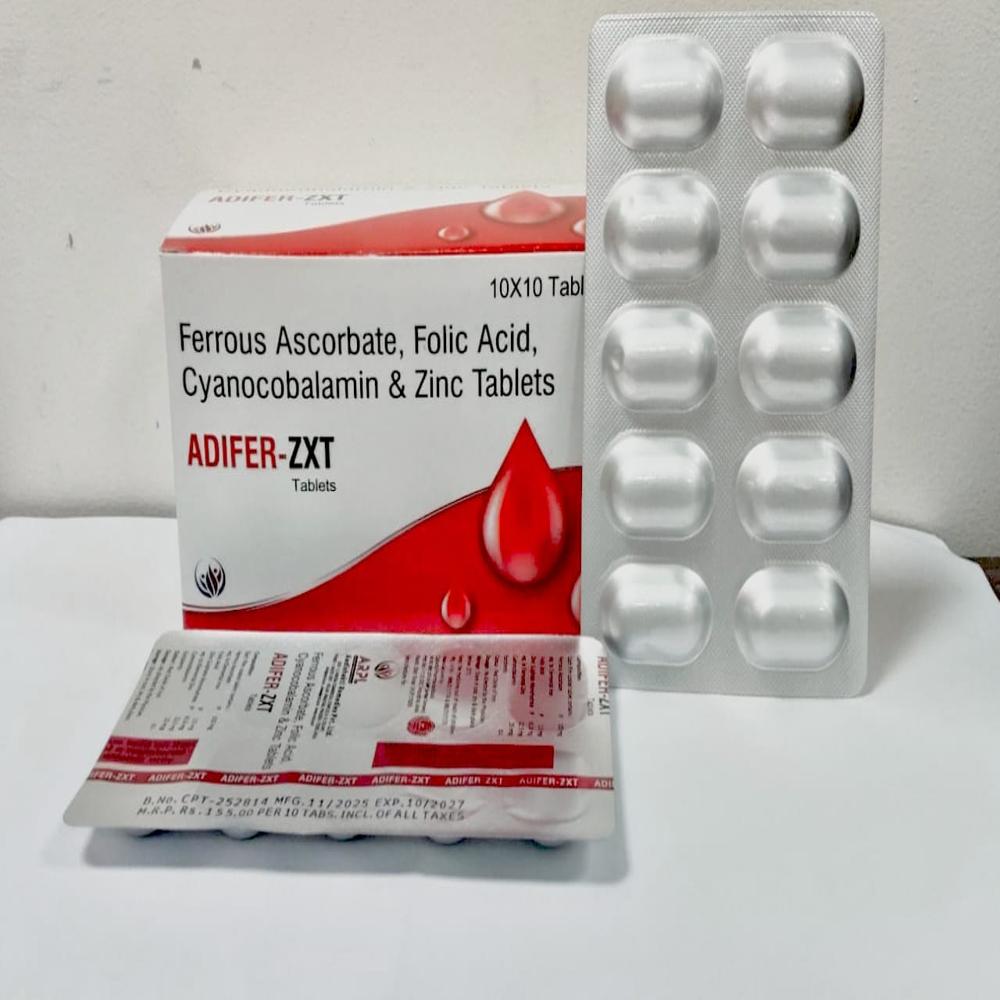
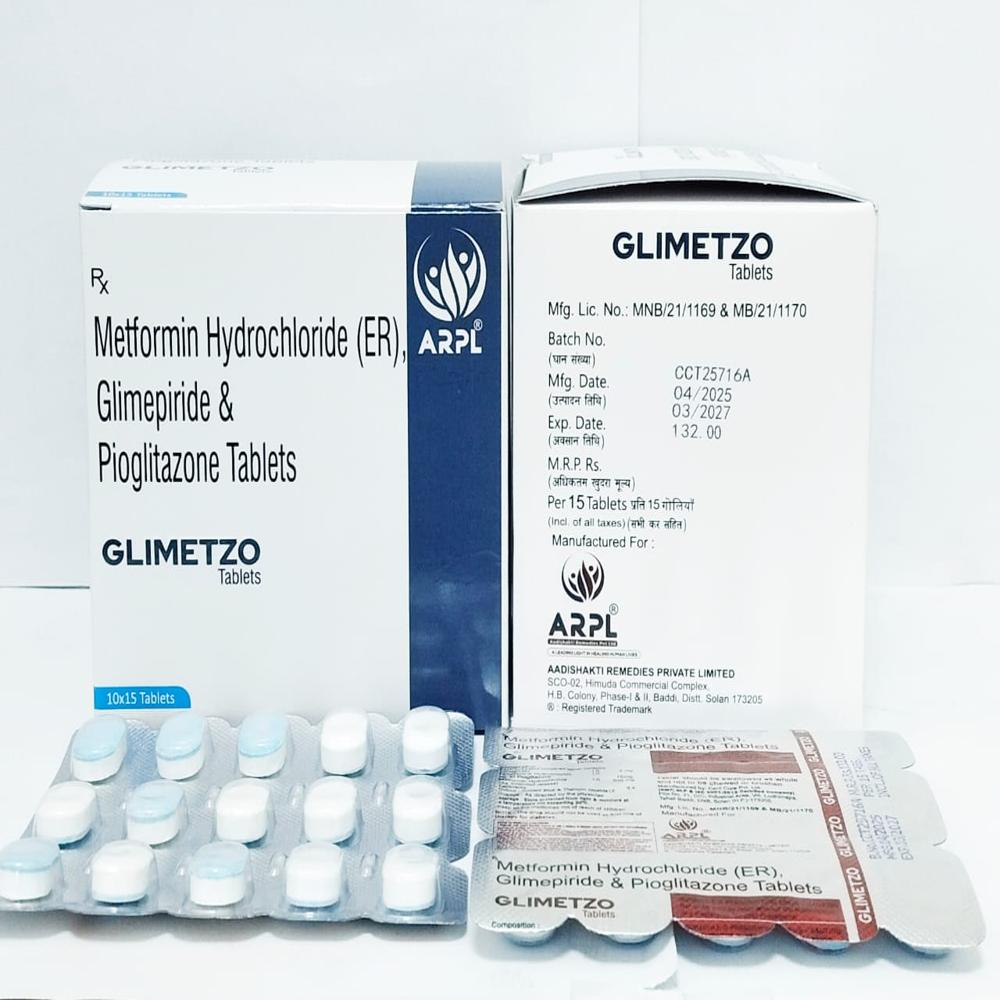


 Send Inquiry
Send Inquiry Send SMS
Send SMS Call Me Free
Call Me Free